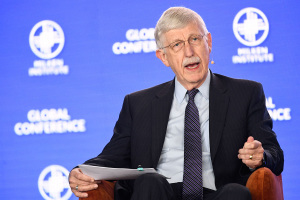Google Bans Porn, Sexually Explicit Ads; Christian Group Hails Enforcement
A change in policy on AdWords that Google announced in March has now gone into effect, banning promotion of "sexually explicit content" from its advertising network across the search engine and other sites – a decision that has been welcomed by an anti-porn group Morality in Media.
Google Inc. formally informed its advertising partners this week that any ads peddling adult entertainment will not appear on its advertising networks, according to Daily Tech.
Google has also posted a set of guidelines on what advertisers cannot promote, which includes "graphic depictions of sexual acts; content with underage or non-consensual sexual themes, including child sexual abuse content; and services that may be interpreted as providing sexual acts in exchange for compensation."
Google added, "We don't allow this content regardless of whether it meets applicable legal restrictions around this kind of content."
In May, Morality in Media had "a productive meeting with GOOGLE about how they can help protect individuals, families and children from exploitation." Hysen Sisco from the group's Porn Harms section says, "Today, we are seeing the fruits of that meeting."
Morality in Media listed Google on both its 2013 and 2014 Dirty Dozen List because of their involvement in and profit from pornography in Google Play, Google Ads, YouTube and more.
Google AdWords Keyword Planner reveals that more than 350 million searches for the words sex, porn, free porn and porno were made in May, and "porn" was one of the most common searches on the engine.
According to a recent study by JAMA Psychiatry, porn adversely affects the brain. "The results also show that the brain region activated when people view sexual stimuli is less active in men who watch a lot of pornography," Time magazine reported, of the study. "It also shows the part of the brain associated with processing rewards is smaller in men who view pornography more often."
However, some advertisers say they are shocked by the decision.
"I was caught by surprise," Theo Sapoutzis, the Chairman and CEO of the Adult Video News Media Network, told CNBC. "I was one of the very first advertisers for AdWords back in 2002. It's something that's been [untouched] for 12 years, so you don't expect change is going to start happening."
Google had recently written to advertisers, saying, "Beginning in the coming weeks, we'll no longer accept ads that promote graphic depictions of sexual acts including, but not limited to, hardcore pornography; graphic sexual acts including sex acts such as masturbation; genital, anal, and oral sexual activity."
Google explained that it will disapprove all ads and sites that are identified as being in violation of their revised policy. "Our system identified your account as potentially affected by this policy change. We ask that you make any necessary changes to your ads and sites to comply so that your campaigns can continue to run."



























